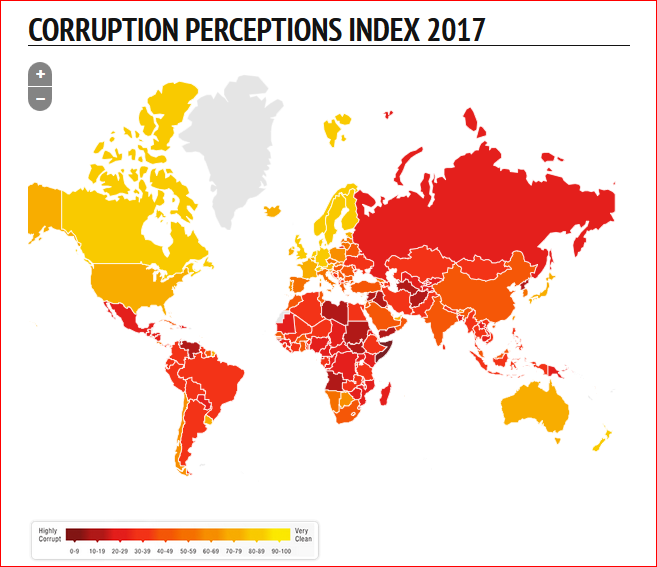The 2017 Corruption Perception Index highlights how majority of the countries are making very little progress in addressing corruption. Two-thirds of the 180 countries surveyed scored below 50 (where 100 is very clean and 0 is highly corrupt). And the most flagrant fact about corruption is that poor countries tend to be the most corrupt.
- It leads to biased decisions in public expenditures. This is apparent in the many “white elephant” projects that costs so much but with little to no output, and public procurement contracts which rests on kinship and kickbacks rather than value-for-money.
- It gives prime importance to relationships. In public offices, some people may be hired not because of their suitability to the position but because of their relationship with the management and staff. Instead of attracting the best talents, corruption breeds nepotism and favoritism.
- It hinders the effective delivery of public service. Because of corrupt activities in generating and collecting public revenues, resources that should have been for development projects go to the pockets of some public sector employees.
Governments have been actively pursuing reforms to address corruption. However, the results are varying and are often minimal. Transparency International recommended the following approach to end corruption:
- Putting in place laws and institutions that will prevent corruption from happening. In addition, government must ensure compliance in its own legislations.
- Reducing impunity for the corrupt. Political power play must be minimized. The justice system, prosecution, and enforcement force must be independent and professional.
- Encouraging civil society to actively participate in anti-corruption efforts.
- Promoting integrity and values in all aspects. The environment as a whole must foster a culture of integrity through a whole-of-society approach.
- Advancing a merit-based civil service with adequate pay and benefits to discourage public sector employees in engaging in corrupt activities.
The World Bank further added the need to simplify regulations, particularly in business entry to promote a competitive private sector. It also emphasizes decentralization with accountability within the government, and budget management to include coverage, treasury procurement, and audit. Finally, this comprehensive approach must be coupled with strong political will among the politicians and civil servants. Otherwise, these reforms will only result to marginal improvements or to no improvement at all.
